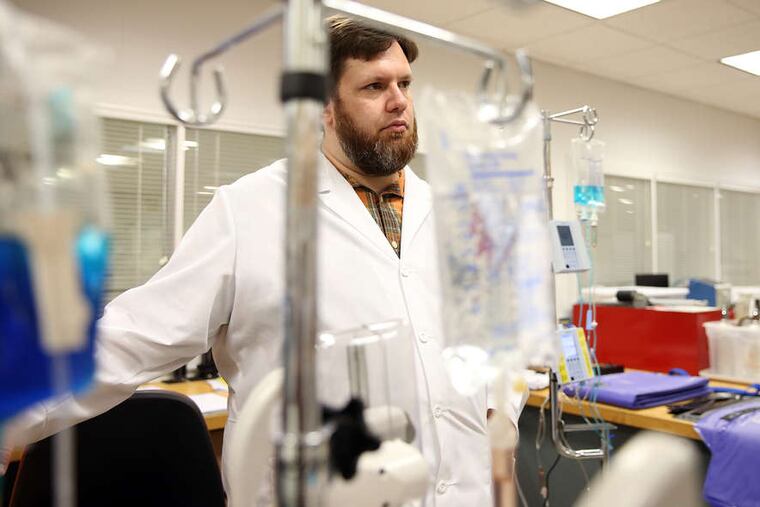Two medical watchdogs are joining forces in the Philly suburbs to create a big international patient-safety group
The merger made sense because of the rocketing pace of evolution in health care, the principals said.

Two of the nation’s leading medical watchdogs, both based in the Philadelphia suburbs, announced on Thursday that they will be merging in early 2020 to create one of the largest independent patient-safety entities on the planet.
The ECRI Institute, headquartered in Plymouth Meeting, was founded as the Emergency Care Research Institute in 1968 by Joel J. Nobel, a neurosurgeon shaken by the death of a 4-year-old boy in his arms after a defibrillator failed to work.
The Institute for Safe Medication Practices (ISMP) in Horsham began its medication error prevention efforts in 1975. ISMP’s founder, pharmacist Michael R. Cohen, was spurred to collect data after a patient suffered a serious reaction to insulin in the hospital where Cohen was employed. The incident prompted him to enlist doctors and nurses across the nation to report medicine errors and drug dosing mistakes. Cohen incorporated ISMP as a nonprofit in 1994.
The partnership is a natural fit, leaders said.
“Our organizations have been working for a long time together in both formal and informal relationships," said Marcus Schabacker, president and CEO of ECRI. “Our missions are very similar. We’re both evidence-based and focused on patient safety.”
Both the ECRI Institute and ISMP are fiercely independent. ECRI does not take advertising or funding from medical-product manufacturers. ISMP takes funds for unconditional education grants and fellowships, and advertising support for its nursing letter.
For five decades, the ECRI Institute has evaluated the safety, quality, and cost effectiveness of medical devices and technologies. ECRI’s Pennsylvania headquarters has the only independent medical-device testing and evaluation lab in North America, the group says. The nonprofit also investigates medical facility accidents and compiles an annual report of the “Top 10 Technology Hazards” in medicine.
The ECRI Institute, with a staff of 500 people, also has offices in Dubai, London, and Kuala Lumpur, Malaysia, where it recently opened a new independent testing laboratory.
ISMP, which will become a subsidiary of the ECRI Institute, is devoted to preventing medication errors and promoting the correct use of prescription drugs. ISMP’s 25 employees will eventually migrate to ECRI headquarters in Plymouth Meeting.
Schabacker said the merger made sense because of the rocketing pace of evolution in health care.
“We’re facing more dramatic changes than I’ve ever seen in 35 years of practice,” said Schabacker, a physician trained in intensive care, anesthesia, and disaster medicine who previously served as chief scientific officer at the medical-products firm Baxter International.
“There’s massive consolidation in the provider area, we’re moving to mHealth and the continued integration of mobile technologies into health care. And we’re facing significant shortages of experts: In 2025 we’ll need a million more nurses and 100,000 more physicians than we expect to have.”
Schabacker said companies with new health applications and little experience in the health-care space aren’t receiving federal oversight. It may depend on independent organizations like his to pick up the slack.
“Google, Apple, and scores of others have released thousands of apps, and they’re not regulated,” Schabacker said. “The FDA is not aggressively pursuing them.”
ECRI and ISMP have developed a five-year strategic plan, he said, that will eventually expand the focus of their investigations from hospitals to elder care, long-term care facilities, ambulatory care centers, and devices designed to be used in the home.
The ECRI Institute receives most of its funding from members, including hospitals, the U.S. Department of Defense, the Department of Veterans Affairs, Health and Human Services, and scores of private foundations. The remaining 40 percent of its funding is generated from consulting projects, including accident and forensic investigations.
During the last two years, the ECRI Institute has evaluated 170 medical technologies that prompted companies to voluntarily improve 55 devices that ECRI determined could endanger patients, Schabacker said.